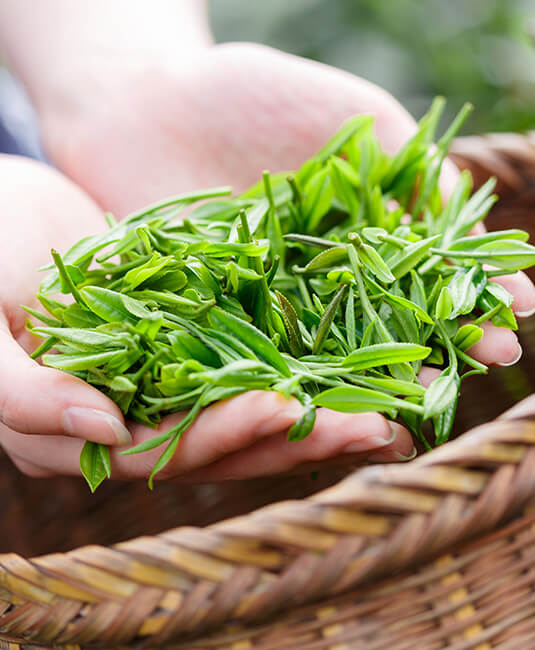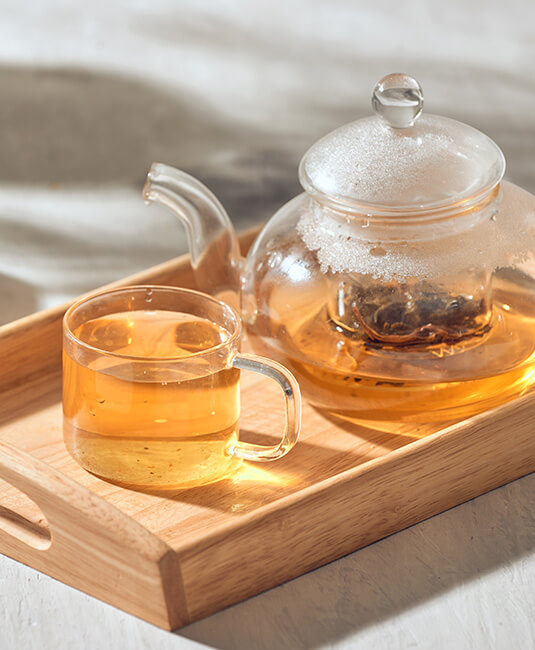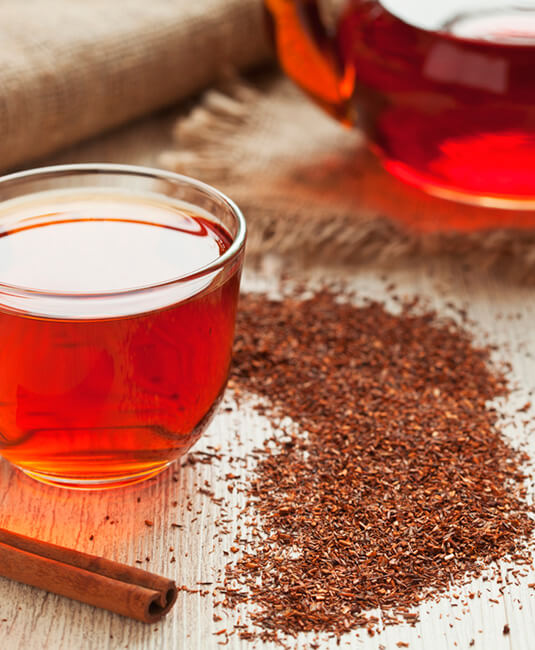Free shipping from $55

I am pregnant, can I drink tea?
Pregnant women can continue to enjoy tea as long as their consumption remains moderate. This is typically around a maximum of three cups per day, preferably consumed between meals. This precaution primarily focuses on limiting theine (caffeine) intake, as per the recommendations of ANSES (the National Food Safety Agency), which advise not exceeding 200 mg of caffeine daily during pregnancy. Research suggests that higher caffeine intake, exceeding 300 mg per day, may have adverse effects on pregnancy, including an increased risk of hypertension in expectant mothers, premature birth, and potential developmental delays in the fetal brain.
It is advisable to limit tea intake (and consume it separately from meals) during pregnancy because tea tannins can hinder the absorption of iron. Iron is a crucial micronutrient for pregnant women, and their requirements for it are elevated during pregnancy.

What is the best tea for pregnant women?
During pregnancy, it's best to choose teas that are low in caffeine. There are certain practices that can help reduce the caffeine content in tea. These include extending the steeping time (beyond 3 minutes), double steeping (infusing the tea for 30 seconds to 1 minute in 90°C water, then discarding the liquid, which eliminates approximately 75% of the caffeine), or reusing the tea leaves (as there is minimal caffeine remaining after the first cup).
Moreover, considering the potential presence of pesticides and heavy metals in specific teas, which can be detrimental to fetal development, it is recommended to engage with a specialized tea vendor that possesses a comprehensive understanding of the teas it offers, along with rigorous oversight of their cultivation and production methods.
Can I breastfeed while drinking tea?
According to a large study on the matter, it is possible to drink tea while breastfeeding, as long as the intake is moderate, limited to a maximum of three cups per day.
Studies indicate that approximately 1% of ingested caffeine is found in breast milk quickly after ingestion. However, its elimination by the baby' still-developing system, especially in the case of newborns and premature infants, occurs at a considerably slower rate. This can result in the accumulation of small amounts of caffeine in the infant's body, potentially leading to issues such as disrupted sleep patterns, restlessness, or nervousness.
Researchers therefore advise that breastfeeding women restrict their caffeine intake, from all sources, to a maximum of 300 mg per day.

Is rooibos recommended for pregnant women?
Rooibos is a recommended choice for expectant or nursing mothers due to its caffeine-free nature. However, its benefits extend beyond caffeine avoidance. It plays a role in maintaining proper hydration, a crucial aspect during both pregnancy and breastfeeding. Furthermore, it aids in digestion, which can be particularly helpful in alleviating nausea or digestive discomfort. Lastly, its flavonoid content supports improved blood circulation, addressing issues like the sensation of heavy legs.
